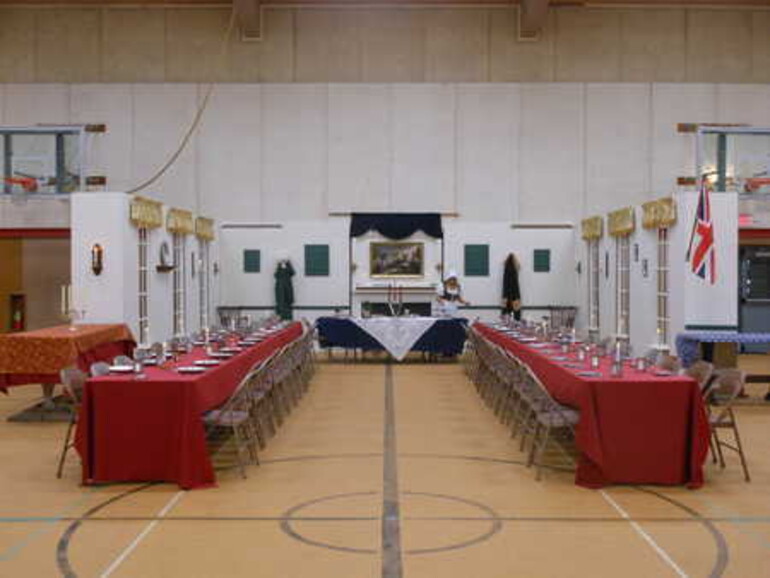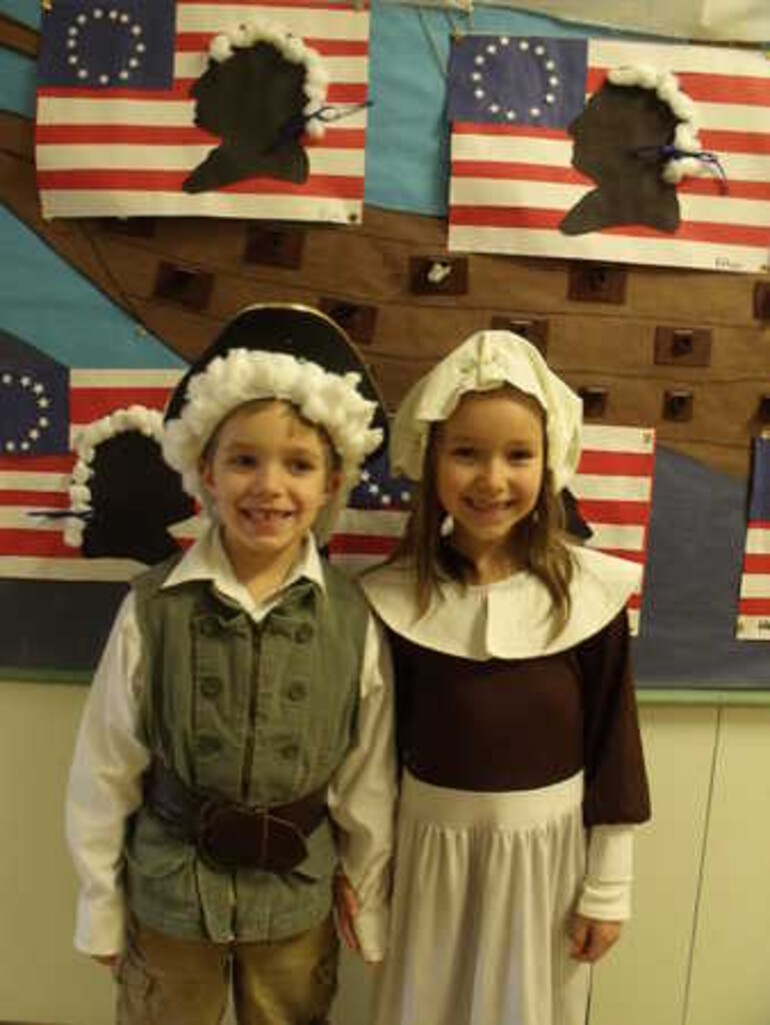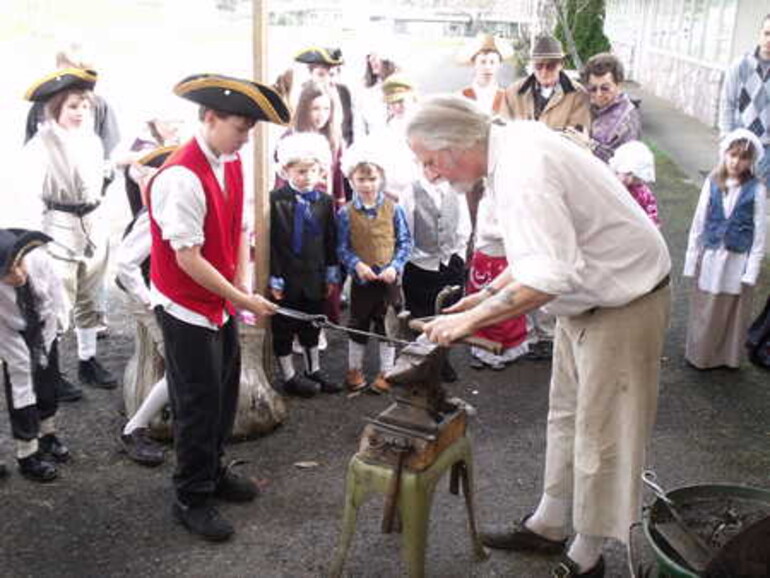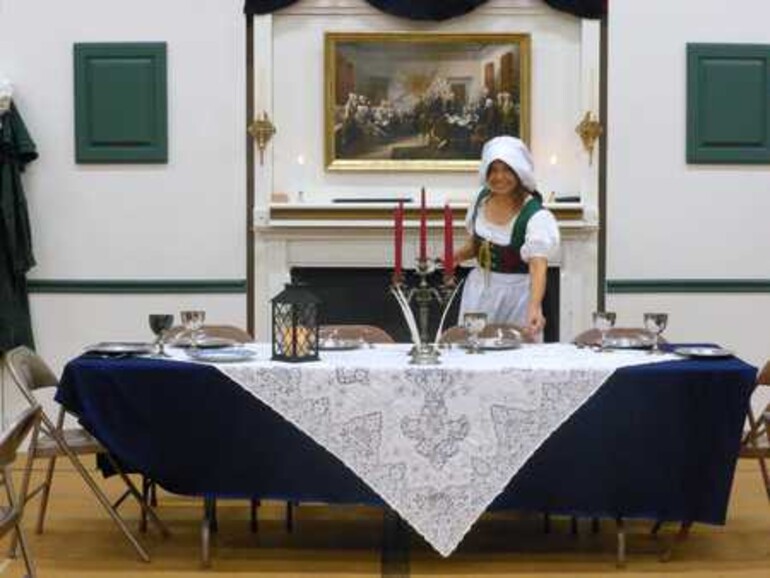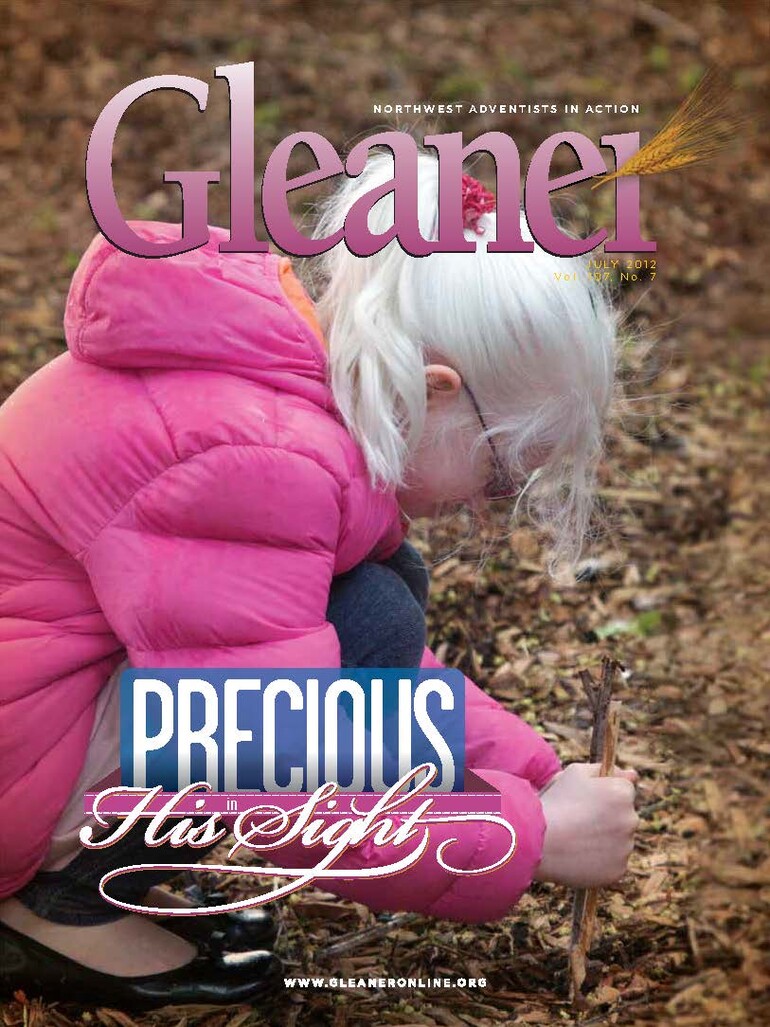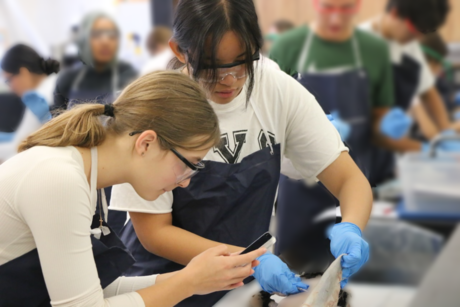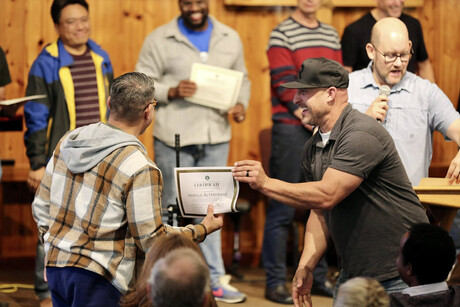The blacksmith's hammer struck the anvil with a resounding ping as the craftsman fashioned a simple tool, tucking the metal in the forge then bringing it out glowing reddish-orange and sending a small shower of sparks to the ground as he pounded the metal to the delight of the assembled crowd of young onlookers. ...
Thus began the first Roseburg (Ore.) Junior Academy (RJA) Colonial Day. Staff, students and parents donned 18th-century styles, listened to live period music and enjoyed dinner as honored guests at the Williamsburg Governor's Mansion — RJA style.
Each classroom became a "Commonwealth," and students spent class time studying American Colonial history, developing a period costume and electing representatives for the "House of Burgess." When the "governor" (Dan Wilbanks, RJA principal) threatened a tax on all desserts in the lunchroom, a crisis was averted by vocal Commonwealth representatives opposing dessert taxes without a proper vote of the people.
A dining hall patterned after the actual Governor's Mansion in Williamsburg, Va., served as the backdrop for a hearty dinner of Virginia vegetable potpie, roasted corn on the cob, and campfire-baked cherry cobbler. A concert of 18th-century fiddle tunes was provided by Dan Clifford, RJA staff member. Blacksmith Jim Rich, also a noted baroque musician, demonstrated 18th-century wind instruments.
At day's end each student was inducted into the Colonial Militia and tasked with "scouting" the school perimeter. Upon returning to the Governor's Mansion each volunteer was paid with a gold (chocolate) coin.
The RJA Williamsburg Dining Hall was also used a few days later as the centerpiece for a scholarship fundraiser breakfast.





